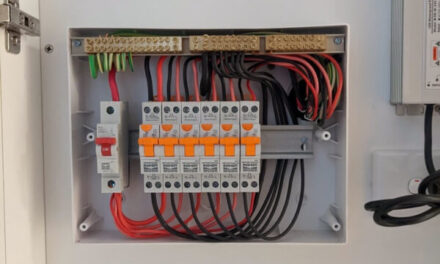For many people, the idea of a well-organized closet is about more than clean lines and color-coded bins—it’s about peace of mind. Decluttering a space has the power to declutter emotions, create calm, and even unlock long-forgotten memories.
That’s why the custom closet industry has seen such a boom in recent years. As homeowners look to create spaces that work better and feel better, closet designers are stepping up with creative, personalized solutions that reflect individual lifestyles. But behind every great closet business is more than just carpentry and shelving—it’s storytelling, emotional intelligence, and smart marketing.
Closets as Memory Keepers
A closet is often a hidden time capsule. Inside are items that span decades—baby clothes, vacation hats, heirloom coats, graduation gowns, and that one pair of jeans from college we just can’t throw away. As we grow and move through life, so do the items we choose to hold on to.
Reorganizing a closet isn’t just about removing clutter; it’s about rediscovering identity. It’s deciding what’s worth keeping, what tells your story, and what you’ve outgrown—literally and figuratively. This is where closet design becomes deeply personal. It’s not just about maximizing space; it’s about honoring the chapters of life that got us to where we are today.
Why Storytelling Sells
Closet designers who recognize this emotional connection have a unique advantage. They’re not just selling shelves—they’re selling transformation. The best marketers in the home organization space understand that their audience isn’t only looking for functionality. They’re looking for clarity, confidence, and a fresh start.
When you tap into those emotions in your messaging, you stop selling a service and start offering a lifestyle. That’s where branding, content, and messaging really matter.
Through compelling before-and-after photos, client testimonials, and real-life stories of transformation, closet companies can show—not just tell—how their work impacts lives.
That’s why experts in closet business marketing are helping companies go beyond technical specs and speak directly to their customers’ goals, pain points, and aspirations. The secret is understanding that closet organization is more about psychology than plywood.
Building Trust in a Visual World
In a world driven by social media and visual appeal, a strong brand presence is more important than ever. Closet businesses that share their process—design inspiration, installation timelines, and client reactions—build trust with prospective customers.
Videos, reels, and even short stories on blogs or newsletters can bring projects to life and help people imagine their own transformation. It’s one thing to say, “We’ll help you get organized.” It’s another to show a busy mom reclaiming her mornings because everything is finally in reach, or a retiree turning a spare closet into a personal hobby nook.
That kind of content builds credibility, sparks emotional connection, and creates lasting brand loyalty.
Organization Is a Form of Self-Care
More people are realizing that home organization isn’t just a luxury—it’s a form of self-care. Living in a tidy, functional space reduces stress, saves time, and creates room for what really matters. A well-designed closet is a small win that can spark momentum for bigger changes.
For business owners in the closet space, that’s a powerful message. You’re not just improving homes—you’re improving lives.
Final Thoughts
Behind every beautiful closet is a story waiting to be told. Whether it’s reclaiming space, rediscovering memories, or simply gaining peace of mind, the emotional impact of home organization runs deep.
For those in the industry, combining design expertise with heartfelt, strategic marketing is the key to reaching customers and creating lasting success. Because at the end of the day, we’re not just organizing things—we’re organizing lives.






